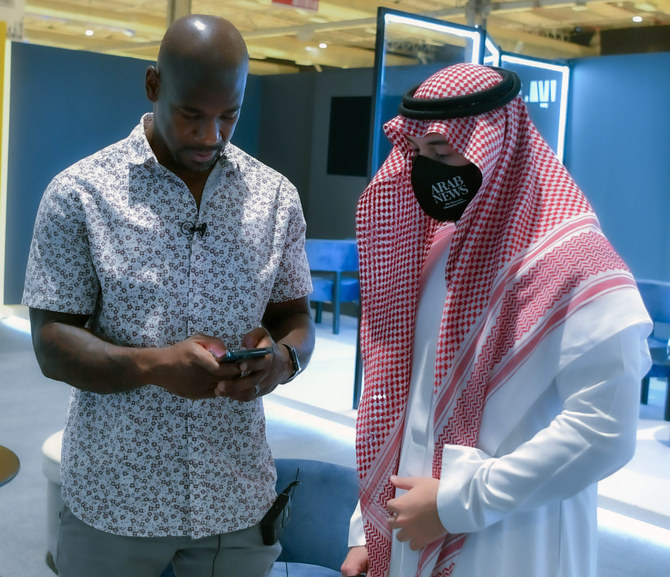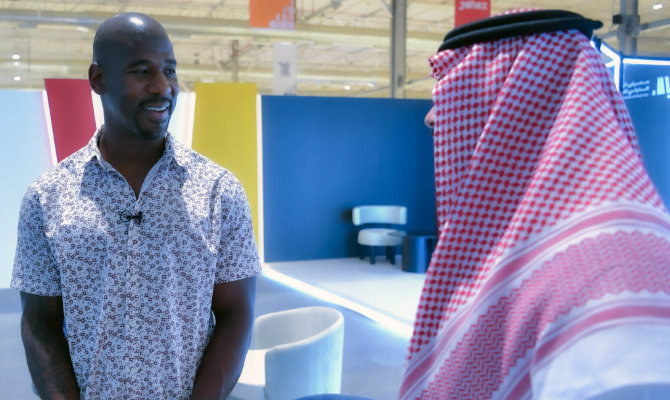RIYADH: Remi Adeleke, the author of “Transformed,” never expected the success of his book to bring him to the Riyadh International Book Fair 2021. It was the first-ever visit to the Kingdom for the 39-year-old writer and actor as he was excited to share his life story with Saudi readers.
“It feels great to have my book here as I never imagined for it to be here,” Adeleke told Arab News on Wednesday during the fair. “And the opportunity for it to be translated into Arabic — it is a tremendous blessing.”
His memoir, “Transformed: a Navy SEAL’s unlikely journey from the throne of Africa to the streets of the Bronx, to defying all odds” takes readers back to stories from Adeleke’s childhood, when he lived among royalty in Nigeria. After his father’s death, his family was stripped of financial wealth by the Nigerian government and his mother relocated the family to the Bronx in New York City.
In the book, Adeleke does not shy away from the illegal activities that threatened to derail his future before he joined the US military.
After 13 years of service, the former Navy SEAL took to writing, public speaking, and even found his way to Hollywood. Adeleke acted in blockbusters like “Transformers: The Last Knight,” and worked alongside Ryan Reynolds in “6 Underground.” In “Ambulance,” Adeleke was co-stars with Jake Gyllenhaal and Yahya Abdul-Mateen. He has two upcoming projects, including a Lionsgate production called “The Plane,” set to be released next year.
The multi-faceted author recently signed a three-book deal for a fiction-thriller series as the first installment is slated to come out in 2022.
“Maybe in the winter,” Adeleke said. “I am also working on a prequel to my ‘Transformed’ book which focuses more on my mother’s story.”
Even though he has a busy year coming up, Adeleke is already hoping he will be able to return to Riyadh for next year’s book fair.
“I will definitely be coming back to Saudi next year,” he said.
Considered the largest book fair in the region, the Riyadh International Book Fair will see the participation of 1,000 publishing houses during the 10-day event, which opened on Sept. 30.
While reading is the main focus of the book fair, there will also be cooking shows, cultural exhibitions, and guest lectures throughout the event. Interactive games, children’s booths, as well as reading stations, are also available at the book fair.


































